|
On the Jewish calendar, the first month of the civil year and the seventh month of the religious year coincide. The seventh month is called Tishrei, meaning beginning. Seven is the number of completion or perfection, so it is significant that the three fall feasts occur in this month. The New Year occurs on the first day of this month. The celebration, also known as Rosh Hashanah or The Feast of Trumpets, occurs at sundown on September 15 on our calendars. The shofar, an instrument made of a ram's horn, will be blown to call the Jews together so they can consider the past year and look at the year ahead. The sound is meant to awaken the souls of those who hear it so that they are prompted to return to God. The horn brings to remembrance the ram that Abraham offered to God as a sacrifice in place of his son, Isaac. It is also a reminder for God's people to remain humble in the face of a holy God.
Another name for the Jewish New Year is "The Day of Judgment." It begins the fall feasts. These feasts are meant to lead those celebrating into right standing with God. Joel 2:1 commands, "Blow the trumpet in Zion; sound the alarm on my holy hill." The shofar is sounded 100 times at Rosh Hashanah. Not only does it call for a gathering of God's people, but it also reminds them to go to war against anything that is contrary to God's truth. We should be encouraged by the words of Joel 2:12-15. "'Even now,' declares the Lord, 'return to me with all your heart, with fasting and weeping and mourning.' Rend your heart and not your garments, return to the Lord your God, for He is gracious and compassionate, slow to anger and abounding in love and He relents from sending calamity. Who knows? He may turn and relent and leave behind a blessing...Blow the trumpet in Zion, declare a holy fast, and call a sacred assembly." God is focused on our redemption. The New Year is to be a time for a reset for all of humanity after a time of self-reflection and repentance. The number of the year is one that speaks to us about the Lord's intentions. In order to follow what many of the prophets are saying about the year to come, we must understand that every letter in the Hebrew alphabet is a picture that conveys a message and has a numerical value. 5784 is the number of the New Year. The fourth Hebrew letter is "Dalet" and has a pictographic meaning of a door or portal. God created the sun, moon, and stars on the fourth day, and their light separates us from darkness. These celestial bodies indicate our times on the calendar. Thus, our Creator regulates our times and seasons, and Tishrei is meant to demonstrate the linking of time and authority. Let us look at all the numbers of this year: Five is the number of grace. Seven is the number of perfection. Eight is the number of new beginnings. And four is the number of a door. We are four years into the decade of the 80s. This number 80 is the seventeenth letter of the Hebrew alphabet and is the picture of a mouth. It is called "Pey" and is associated with speech and other functions of the mouth like blowing. What does this say to us as we consider the year 5784? Remember that God created the world with His spoken word. Since we are made in His image, our sounds have power as did His. We have been given the power to bless or curse. Proverbs 18:21 tells us, "The tongue has the power of life and death..." Then we have Psalm 81:10 that promises, "...Open wide your mouth and I will fill it." God is the one who fills us with good things! The ten days between Rosh Hashanah (The New Year) and Yom Kippur (The Day of Atonement) are called The Days of Awe because the Jews believe their actions during these ten days can alter the decree God writes about them in His heavenly book. I believe we have a great opportunity to walk through new doors in the year to come. Perhaps this is time for us to experience growth in a new dimension—the fourth or spiritual dimension. Believers have legal access to the spirit realm. Ephesians 2:6 confirms this: "God raised us up with Christ and seated us with Him in heavenly realms in Christ Jesus." Could the declaration of our faith move us into a season of creation that we have not seen before? We must embrace the promises of God by declaring them so that the door of blessing and opportunity is open for us. Let it be! In just two weeks, the Jews will be celebrating their New Year, Rosh Hashanah. Central to their celebration is the reading of the story of Abraham and his willingness to sacrifice his son, Isaac, at the command of God. Because of his act of faith in God, Abraham has become known as The Father of Faith. He began to demonstrate faith when God first spoke to him at the age of 75. God said to him, "Go from your country, your people, and your father's household to the land I will show you. I will make you into a great nation, and I will bless you; I will make your name great, and you will be a blessing. I will bless those who bless you, and whoever curses you I will curse; and all people on earth will be blessed through you." (Genesis 12:2-3) Abram, as he was known then, put feet to his faith and set out for the Promised Land.
Abram had another encounter with God when he was 99 years old. God said to him, "As for me, this is my covenant with you. You will be the father of many nations. No longer will you be called Abram; your name will be Abraham, for I have made you a father of many nations." (Genesis 17:4-5) To seal the promise God was making, He required all males to be circumcised as a sign of this everlasting covenant. Faith was to become the key for all nations to be part of the family of God. That faith must be established through our belief that Jesus Christ is the Son of God and died for our sins. If we make this decision, the righteousness of Christ is given to us. Romans 4:9 tells us that "Faith was credited to Abraham as God's righteousness!" (TPT) Faith in God and righteousness go hand-in-hand. Romans 4:3, in The Passion Translation, explains this. "Because Abraham believed God's words, his faith transferred God's righteousness into his account." Romans 4 also makes it clear that this righteousness is available to every person on the face of the earth. Look at Romans 4:10-11. "How did he (Abraham) receive this gift of righteousness? Was he circumcised at the time God accepted him, or was he still uncircumcised? Clearly, he was an uncircumcised gentile when God said this of him! It was later that he received the external sign of circumcision as a seal to confirm that God had already transferred His righteousness to him by faith, while he was still uncircumcised." (TPT) God's promises to Abraham were ultimately fulfilled through Jesus Christ who is in Abraham's line. Notice that God did not select a perfect man in Abraham. We can see the mistakes that he made and sins that he committed. He learned through these and grew in faith. The ultimate test of his faith was when he was told to sacrifice Isaac, his only son. He traveled approximately 50 miles to Mount Moriah and had an abundance of time to reconsider what he was about to do. But Abraham demonstrated that he loved God more than he loved the promise. Through his commitment to follow God's command, he was rewarded with blessings that confirmed his faith in God. We can be assured that our faith in God will be tested. That is the only way for it to grow. God wants to increase His righteousness in our "accounts" through increasing our faith. Why else would He send his Son to earth to die? "God made Him who had no sin to be sin for us, so that in Him we might become the righteousness of God." (2 Corinthians 5:21) It seems to me that when we pass our tests, we get a double bonus: increased faith and righteousness. "A Haven in Time"—that is what the month of Elul is called. We entered into this sixth month on the Hebrew calendar on Thursday evening. Why is Elul called a haven? It is because our God, the God of Abraham, Isaac, and Jacob, appointed this time as one where His mercy and forgiveness are extended to us in a personal way. If we look back at the history of the children of Israel, we see that the prior two months (Tammuz and Av) are known for the sins committed against the Lord. Because of their sins of lust and unbelief, the Israelites built the golden calf and refused to enter the Promised Land. Elul is meant as a time for repentance and redemption.
Today, God reaches out to us even in the midst of our sin. His overwhelming desire for intimacy with us overrides any anger over our disobedience. During Elul, He extends the opportunity for us to prepare for the high holy days of the next month through repentance now. The Lord extends mercy in a very personal way by making Himself more accessible to us. The Jewish people say of Elul: "The King is in the field." God's desire for intimacy with us is so great that He leaves His heavenly dwelling to come to earth and make Himself accessible in the field of our lives. We have an entire month when the Lord is here to remind us of His loving kindness and love. For me, it is particularly significant that God picked the month of Elul to send the angel Gabriel to tell Mary about God's plan to use her to birth His son. "In the sixth month, God send the angel Gabriel to Nazareth, a town in Galilee, to a virgin pledged to be married to a man named Joseph, a descendant of David. The virgin's name was Mary...the angel said to her, 'Do not be afraid, Mary, you have found favor with God. You will be with child and give birth to a son, and you are to give him the name Jesus.'" (Luke 1:26-27, 30-31) "...So, the Holy One to be born will be called the Son of God." (Luke 1:35) During the month of Elul, God took His first step to put into motion His plan for His Son to come to earth to live in a tent of flesh for 33 years. John 1:14 describes what happened: "The Word became flesh and made His dwelling among us." The Passion Translation gives us a good visual of John 1:14. "And so the Living Expression became a man and lived among us! And we gazed upon the splendor of His glory, the glory of the One and Only who came from the Father overflowing with tender mercy and truth." God's desire has always been to dwell with us. Look back to Exodus 25. In this part of Scripture, the Lord instructs Moses to build Him a tabernacle. Verse 2 says, "...You are to receive the offering for Me from everyone whose heart prompts them to give." The purpose for the tabernacle is described in Verse 8. "Then have them make a sanctuary for Me, and I will dwell among them." It is hard to imagine such a loving God. The Lord made the ultimate sacrifice for us so that we could live with Him for eternity. "This is love: He loved us long before we loved Him. It was His love, not ours. He proved it by sending His Son to be the pleasing sacrificial offering to take away our sins." (1 John 4:10 - TPT) During Elul, God gives us an invitation to experience deeper measures of HIs love. It is so fitting that the name Elul is a Hebrew acronym, "Ani L'dodi V'dodi Li" which means "I am my beloved’s, and my beloved is mine." (Song of Solomon 6:3) Should we not respond positively to God's loving invitation for intimacy? Let us be sure that our hearts are clean, open, and prepared to experience Him in this haven in time. July 4, 1776, 247 years ago, our founding fathers signed the Declaration of Independence with two main objectives: (1) A declaration of independence from Great Britain, and (2) a declaration of dependence upon Almighty God. Its writers used the Bible as their example. I wonder how they would feel about the chaos that has ensued in our country. It seems we have endless battles between Christians and non-Christians whose opinions are opposite when it comes to the evidence of a Creator and creation. Moral absolutes are being challenged by those who say there is no such thing. Yet, on the day of America's birth a bell was rung that had a Scripture inscribed on it from Leviticus 25:10. "Proclaim liberty throughout the land to all the inhabitants thereof." That bell remains as a testimony to the foundation from which our nation was established--The Bible.
Our 30th president, Calvin Coolidge (who was born on July 4, 1872), said it well when he looked into the future of our nation. "The foundation of our society and our government rest so much on the teachings of the Bible that it would be difficult to support them if faith in these teachings would cease to be practically universal in our country." Sadly, I see these words beginning to bear fruit. Let us not forget that the Bible was the foundational book used in our schools at the dawning of America. Those of us who hold to the truths upon which our country was established must come into agreement with our forefathers. Dutch Sheets, in a post written on June 22 entitled "God Needs Our Agreement," confirms this. He reminded us of the importance of agreeing with previous generations. Dutch shared interesting information about the foundations of our schools. He wrote, "One hundred six of America's first one hundred eight colleges and Universities were founded on the Christian faith. Students at Harvard and Yale were required to read Scriptures twice daily. Harvard's founders stated: 'All knowledge without Christ is vain.' Its motto was 'For Christ and The Church.' Yale's founders stated that 'Every student shall consider the main end of his study is to know God in Jesus Christ...' Princeton's motto was 'Under God's Power She Flourishes.'...Noah Webster, who published the first American Dictionary of the English language in 1828 said, 'Education is useless without the Bible.'...Webster also said, 'The principles of genuine liberty, and of wise laws and administrations, are to be drawn from the Bible and sustained by its authority. The man, therefore, who weakens or destroys the divine authority of that book may be accessory to all the public disorders which society is doomed to suffer.'" There is a remnant of people in the United State who understands and believes in the foundational truths upon which our nation was established and on the precepts and commandments that are the underpinning of our Constitution. We must declare these truths in agreement with the generations that came before us. We cannot allow the loud voices of descension to override truth. The future of our nation depends upon us. In a post from June 21, Dutch Sheets reminded us of the powerful hymn written by Martin Luther titled, "A Mighty Fortress is our God." I would like to highlight a line from the third verse. "And though this world, with devils filled, should threaten to undo us, we will not fear, for God has willed HIs truth to triumph through us..." Triumph occurs through our declaration of truth. We must take every opportunity God gives us to make truth known. We can take heart from the words of Scripture: "Every word of God is flawless; He is a shield to those who take refuge in Him." (Proverbs 30:5) Have you wondered what has happened to the Bible-believing, Christ-loving people of the United States? They are not gone! Perhaps they are a remnant; however, they are alive and well and are praying and working in the background. Proof of this recently happened in two applications.
I have written before about the power of the tongue for good or evil. The tongues of many Believers were used at the United States Capitol at the end of April for the good of our country. Volunteers read the entire Bible around the clock. Established in 1990 by Dr. John Hash and Dr. Corinthia Boone, the event is meant to "draw attention back to the Bible." The current organizers of this event, Seedline International, say that this "tradition recognizes the Bible is at the heart of America's founding principles, and should be voiced at the heart of the nation." Many do not realize the significance of this yearly event. By proclaiming God's Word at the seat of our national government, we are coming into agreement with the Kingdom of God and reaffirming our commitment to the Lord's truth. Another significant event that has been taking place since 1952 is the National Day of Prayer. President Harry Truman signed into law a bill calling for the annual observation of this day of prayer on April 17, 1952. There had been spotty observations of national prayer since 1775 when the Continental Congress announced "a day of public humiliation, fasting, and prayer." George Washington proclaimed a day of prayer and thanksgiving in 1789. In 1863, Abraham Lincoln found the need for a national day of humility, fasting, and prayer during the Civil War. Thankfully, we can count on having prayer for our nation yearly because of the law passed by the Congress and signed by our president. This year's National Day of Prayer was based on James 5:16. "...for tremendous power is released through the passionate, heart-felt prayer of a godly believer!" (TPT) Rev. Samuel Rodriguez, co-host of this year's event, said that "our prayers for our nation are more important now in 2023 than ever before in American history...The 2023 National Day of Prayer carries an incredible amount of spiritual and moral weight as it pertains to the advancement of this idea we call the American experiment." The National Day of Prayer leadership gave some suggestions on how to pray. "We are praying for an awakening in America. We are praying for unity. We are praying for repentance. We are praying for hope; we are praying for truth to overcome the lies, for love to silence hate, and for America's problems to become America's testimony." Revelation 5:8 tells us, "...the four living creatures and twenty-four elders fell down before the Lamb. Each one had a harp, and they were holding golden bowls full of incense, which are the prayers of God's people." Our prayers and declarations of God's Word will make a difference in the personality of our country. Let us praise God that are godly traditions are still being carried out in the United States and that the remnant of Believers will fill the bowls in heaven with their prayers that will return us to our godly foundations. In his second book, Acts, Luke makes it clear that Jesus appeared to his disciples for 40 days after His resurrection from the dead. Jesus dedicated those 40 days to helping His disciples understand the Scriptures and to explaining the Kingdom of God and the power of the Holy Spirit to them. We are currently in the same 40-day time period between the resurrection of Jesus and His ascension.
The disciples were given a life calling which has been handed down to us. Jesus told them, "All authority in heaven and on earth has been given to me. Therefore, go and make disciples of all nations, baptizing them in the name of the Father and of the Son and of the Holy Spirit, and teaching them to obey everything I have commanded you. And surely I am with you always, to the very end of the age." (Matthew 28:18-20) The gospel of Mark gives more detail about the power and authority for the disciples. "And these signs will accompany those who believe; in my name they will drive out demons; they will speak in new tongues; they will pick up snakes with their hands; and when they drink deadly poison, it will not hurt them at all; they will place their hands on sick people, and they will get well." (Mark 16:17-18) In the gospel of Luke, we are told that Jesus "opened their minds so they could understand the Scriptures." He reminded them of this: The Messiah will suffer and rise from the dead on the third day, and repentance for the forgiveness of sins will be preached in His name to all nations, beginning at Jerusalem. You are witnesses of these things. I am going to send you what my Father has promised; but stay in the city until you have been clothed with power from on high." (Luke 24:45-49) John includes some stories of the disciples' encounters with Jesus that are not in the other three gospels. One story recounts the appearance of Jesus to Peter, Thomas, Nathaniel, James, and John as they fished on Lake Galilee. He instructs them to fish on the starboard side of the boat after they caught nothing. Their catch was so large that it made pulling in their net almost impossible. Scripture tells us there were 153 fish in the net, a number that represents the harvest that was to come from the people groups of the world. (Footnote from The Passion Translation) Before Jesus ascended, He advised His disciples to stay in Jerusalem until the power of the Holy Spirit came upon them. (Acts 1:4) Can you imagine the conversation that took place among the disciples as they waited for the infilling of the Holy Spirit? They probably spoke about the events of the last three years of their lives with Jesus and wondered what the next chapter would look like. The 50 days between the Resurrection and Pentecost should also be one of review and preparation for us. There is always more with Jesus! Perhaps we will have a new perspective on our lives as we wait upon the Holy Spirit to reinvigorate and renew us. The Bible tells us, "Wait for the Lord; be strong and take heart and wait for the Lord." (Psalm 27:14) The one who created the heavens and the earth existed before there was creation. Genesis 1:1 used the Hebrew word Elohim which translates God, Mighty Creator, Omnipotent Power. With His breath He made everything from nothing, spoke order into chaos, and light into darkness. Elohim is the plural form of El that gives recognition to the truth that He is a Triune God—Father, Son, and Holy Spirit. On the sixth day "God created man in His own image..." (Genesis 1:27) His desire was and is to fill our lives with blessings. Psalm 102:27 tells us about the infinity of God. "But you remain the same, and your years will never end."
After destroying life on earth because of its wickedness, God started again with Noah and his family and demonstrated that He is the God who keeps covenant with His people. Nations were birthed from Noah's sons, Shem, Ham, and Japheth. From Shem's family came Abram and another covenant with God. God said, "I will make you into a great nation, and I will bless you; I will make your name great, and you will be a blessing. I will bless those who bless you, and whoever curses you I will curse; and all peoples on the earth will be blessed through you." (Genesis 12:2-3) Abram was blessed with abundant provision through God. To broaden Abram's understanding of Elohim, God said to him, "Do not be afraid Abram. I am your shield, your very great reward." (Genesis 15:1) The covenant God made with Abram (who He renamed Abraham, meaning "Father of a multitude") was sealed with a sign. Every male was to be a sign of the covenant through circumcision. In the generations to come, all male children would be circumcised on the eighth day. (Genesis 17:12) Eight is the number of new beginnings. The story of Abraham and his relationship with God was verbally shared through the generations. However, when the children of Israel were detained as slaves in Egypt, much of what had been handed down from generation to generation was forgotten. After 430 years of oppression and slavery, God appointed Moses to lead them to the Promised Land and used the events of their journey as a way to reintroduce His character. This took place during the second month on the Hebrew calendar. This month has two names: Iyar and Ziv, which means radiance. We are in the first week of this month and can learn from the Israelite journey. Since this month is linked with light it is time for us to ask God for revelation and to radiate God's glory as we learn more about Him. As we look back at the events of this month, we can see that God's desire is for greater intimacy with His children. One of ways that we can accomplish this is through getting to know His names. With multiple names, we have multiple ways to relate to Him. Worship leader Paul Wilbur wrote a song called "The Diamond Turns." He asks the question: "Who is like You Oh Lord among gods? Who can worship as You shine? Who could even know in just a single gaze all the glory of Your face?" God is like a diamond with multiple facets. He is radiant; His light is blinding! Every facet of the Lord is unique and meant to help us in our journey on earth. Again, let's look back at the children of Israel and see how they were developing a new level of relationship with God as they traveled. They saw that God would fight for them as He opened the Red Sea. In the Song of Moses they sang, "The Lord is a warrior." (Exodus 15:3) Then they learned that God is Jehovah Rapha (The God who Heals) when he purified the bitter waters of Marah. God led them as a shepherd so that they became familiar with His name Yahweh Rohi. As they grumbled about the lack of food, God provided manna for sustenance and called Himself Jehovah Jaira (The Lord Will Provide). When they went to battle against the Amalekites, the Lord fought with Joshua and the troops and helped Moses hold up his hands in victory through the battle. Moses built an altar to His name, Jehovah Nissi. (The Lord is My Banner) With God everything is personal. May I suggest that we investigate some of the names of God during this month of radiance. As we get to know Him more intimately, we will radiate HIs light and glory. Why is it that some children seem to be born with a predisposition toward a specific focus in life? My only explanation for this is that God makes it part of their DNA. Such was the case for Evan Roberts, a young revivalist from Wales with an unquenchable passion for the presence of the Lord. Born on June 8, 1878, he was part of a family of Calvinist-Methodists. I surmise that God intended this to be, so that his hunger for revival would be encouraged. As was the case with most men who lived in Southern Wales, Evan's father worked in the coal mines. When he was in a mining accident, Evan was taken out of school to work in the mines. However, his love of the Lord and of God's Word was the foundation upon which he built his life. His Bible went to the mines with him daily. He even shared a Scripture with the workers as they went down into the mine and encouraged them to meditate on it during the workday.
It was at age 13 that Evan had an encounter with God at his church named Moriah Chapel. He became obsessed with living a life that pleased the Lord and regularly asked himself the question, "What would Jesus do?" Evan's life as a teenager was marked by fervent prayer. His dedication to God and desire for intimacy with Him brought him spiritual power. He felt called to enter full-time ministry and focused his long prayers on asking God to bring revival to his Welsh community. He told the congregation at Moriah Chapel, "I have reached out my hand and touched the flame. I am burning and waiting for a sign." (Page 82, God's Generals by Roberts Liardon) On October 31, 1904, Evan's 13-year prayer burden was answered. He saw the fruit of his prayers through a revival that broke out among a group of young people who received Christ as their personal Savior. While the Holy Spirit was poured out in the southern part of Wales, God orchestrated revival in villages in north Wales. At Moriah, Evan shared his belief that God had promised to save 100,000 individuals. Revival meetings took place nightly. Those who attended the meetings were instructed by Evan to "Pray, believe, and wait." He also told them to pray a specific prayer: "Send the Holy Spirit now for Jesus Christ's sake." Revival spilled out on to the streets and into homes, workplaces, and shops. Many traveled from England and Scotland to participate in the Wales revival. The bulk of their meeting time was filled with singing. But Evan was convinced of the priority of prayer. He said, "We may sing all night without saving. It is prayer that tells, that saves, and that brings heaven down among us. Pray, friends, pray!" The consistent, fervent, unending prayers of a young man transformed the southern part of Wales and spread revival around the country and into others. Evan believed that the Holy Spirit of God would bring revival as the prayer bowls in heaven were filled. Oh, how I desire to see that conviction fall upon our nation! I believe that only the Lord can change the destructive path we are on and bring us back to the godly foundations from which we have fallen. Evan Robert would pray: "Bend the church and save the world. Bend me. Bend me." Let us join together in this prayer to fill the bowls in heaven so that they overflow and pour revival upon us. Why should Passover be important for Christians? Robert Heidler, in his book The Messianic Church Arising, gives us several explanations:
(1) The root of our faith comes from the Jews, and we are spiritually united with Israel. (2) Our Scriptures contain multiple references to the celebration of Passover and tell us to remember God's Word. "This is a day you are to commemorate; for the generations to come you shall celebrate it as a festival to the Lord." (Exodus 12:14) (3) Passover is included as part of God's plan of salvation. Without Passover the Jews would have died in Egypt and Jesus would not have been born. Without Jesus there is no salvation. (4) Passover teaches us about Jesus—The Passover Lamb. (1 Corinthians 5:7) It was by His blood that we were redeemed and set free to walk in the promises of God. Robert Heidler's book explains that "Every element (of Passover) points to Jesus." Jesus is the One who brings us deliverance, redemption, and freedom. He celebrated the Passover with His disciples: "Then came the day of Unleavened Bread on which the Passover lamb had to be sacrificed. Jesus sent Peter and John, saying, 'Go and make preparations for us to eat the Passover.'" (Luke 22:7) Under two kings of Judah, the temple was cleansed, items of defilement were removed from the sanctuary, and the covenant with the Lord was renewed. Hezekiah had the Levites consecrate themselves so that they could make sacrifices to the Lord. He then reinstated the practice of celebrating Passover. Though it was done in the second month of the year instead of the first, God was pleased with their offerings and blessed the people. A spirit of generosity came upon them as they were revived. (2 Chronicles 30) Josiah's acts of devotion to the Lord are recorded in 2 Chronicles 34 and 35. He destroyed idols, purified the land and the temple, and read the Book of the Covenant. He reinstituted the celebration of Passover in Jerusalem. 2 Chronicles 35:18 tells us, "...none of the kings of Israel had ever celebrated such a Passover as did Josiah..." A celebration like this brings unity to the community and revives it. It appears that the celebration of Passover is directly linked with revival. My belief is that if the church began to acknowledge and honor Passover, She would be renewed and revived. Even the simple act of reading the Biblical accounts of Passover and acknowledging that Jesus is our Passover Lamb could begin a revival of our faith. Wednesday at sundown begins Passover. Are we ready to celebrate? When God was ready to deliver His people from the bondage of Egypt, He introduced a new calendar order for the months. "The Lord said to Moses and Aaron in Egypt, 'This month (Nissan) is to be for you the first month, the first month of your year.'" (Exodus 12:1-2) I believe God wanted the Israelites to associate their deliverance and the Passover they would experience just before leaving Egypt with new beginnings. Spring is a time of new beginnings and a reminder of how all creation has recovered from a death process in order to rise to new life.
In this year (2023), the first month on the Hebrew calendar begins on Wednesday at sunset. It is called Nissan or Abib and is a Hebraic term for when the seeds of the grain have reached their full size. This was demonstrated as the children of Israel entered the Promised Land. God told them, "...When you enter the land I am going to give you and you reap its harvest, bring to the priest a sheaf of the first grain of your harvest. He is to wave the sheaf before the Lord so it will be accepted on your behalf; the priest is to wave it on the day after the Sabbath." (Leviticus 23:10-11) Isn't it amazing that the Promised Land was ripe for harvest when God's people were given it? The details of God's timing and coordination of the events of each month are amazing! When Nissan began, the children of Israel were told that each Jewish family was to bring a spotless, year-old lamb into the household on the tenth of the month. The lamb was to be cared for until the fourteenth of the month when it would be slaughtered. The blood of that lamb was to be placed on the sides and top of the doorframes of their homes. As the angel of death passed through Egypt to kill their firstborn sons and animals, the children of Israel were protected by the blood of the lamb, and their homes were "passed over." The plague that struck Egypt did not touch the Israelites. In memory of this event, the Israelite families killed a Passover lamb yearly until God stopped the lamb sacrifices by bringing His Son, Jesus, to earth to die once and for all time. He became the true Passover Lamb that redeems us from our sins. As we receive Jesus into our hearts, His blood is applied to the doorframe of our hearts. We become "born again." 2 Corinthians 5:17 says, "If anyone is in Christ, he is a new creation: The old has gone, the new is here!" And, as a sign that heaven was touching earth, the Lord placed a reminder of our Passover Lamb in the heavens during Nissan. The constellation Aries, the lamb, is prominent in the night sky during this month. With God, nothing is left to chance. He even assigned a marching order to the children of Israel when they began their journey to the Promised Land. The tribe of Judah was to go out first. The Lord knew that HIs people would face battles on the way to their destination. What better way to overcome the enemy than with praise to the Lord? Judah comes from the Hebrew word Yadah, which means "to praise, to give thanks, and to glorify God." We find two interesting verses in Psalm 114: "When Israel came out of Egypt, the house of Jacob from a people of foreign tongue, Judah became God's sanctuary, Israel His dominion." (Verses 1-2) This means that God lived among them. He chose to dwell in their presence, and they became His dominion on the earth. Let us rejoice in the reminders that we see of God's redemption and praise Him for what He has done. As spring erupts around us, He is calling each of us to join Him in a journey to our own Promised Land. If we walk in the will of God, He will empower us to live there and partake of the fullness of HIs provisions. |
Joan E. MathiasCategories
All
Archives
April 2024
|
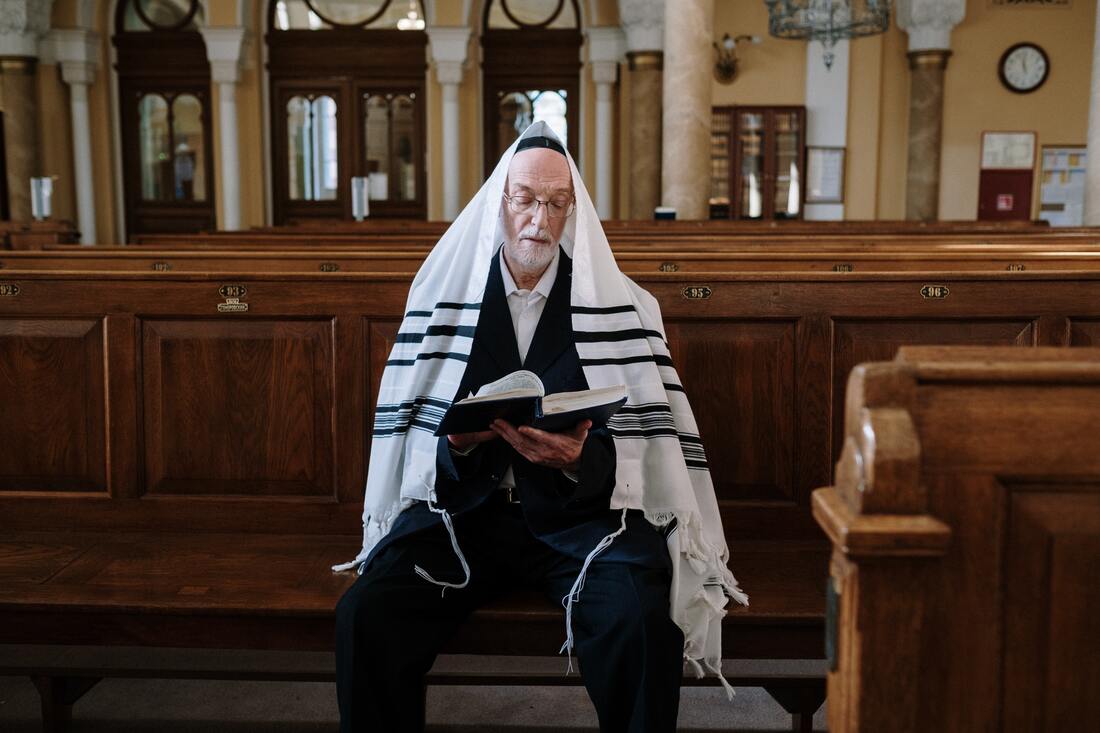


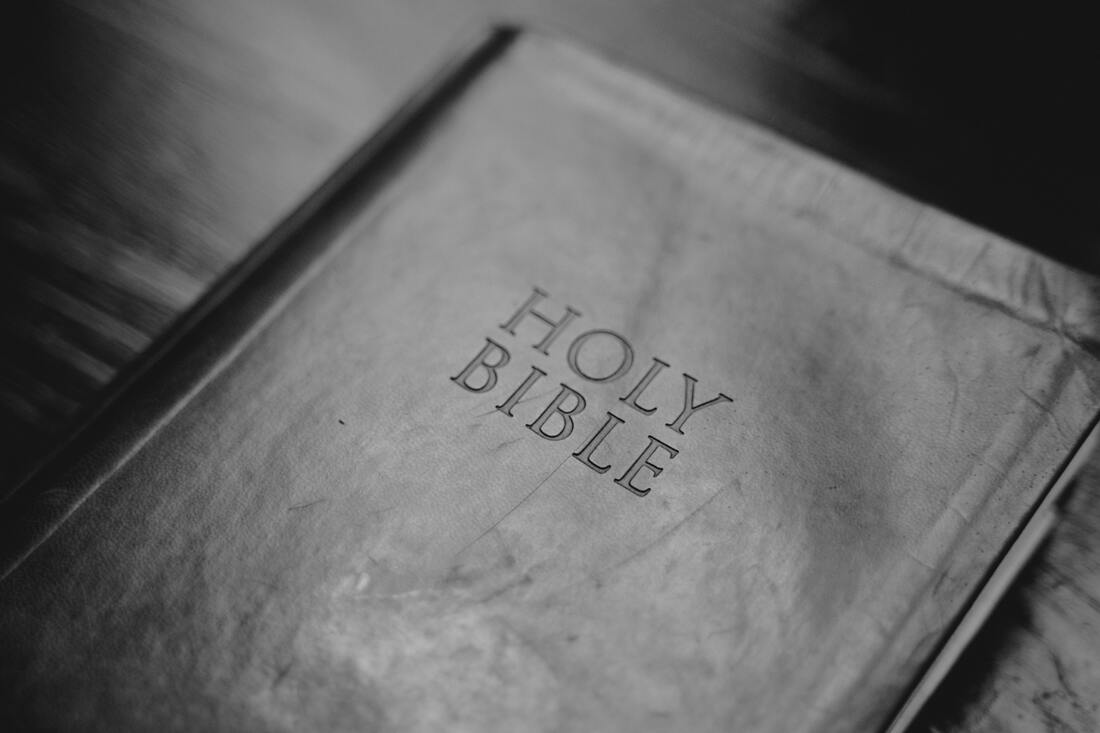
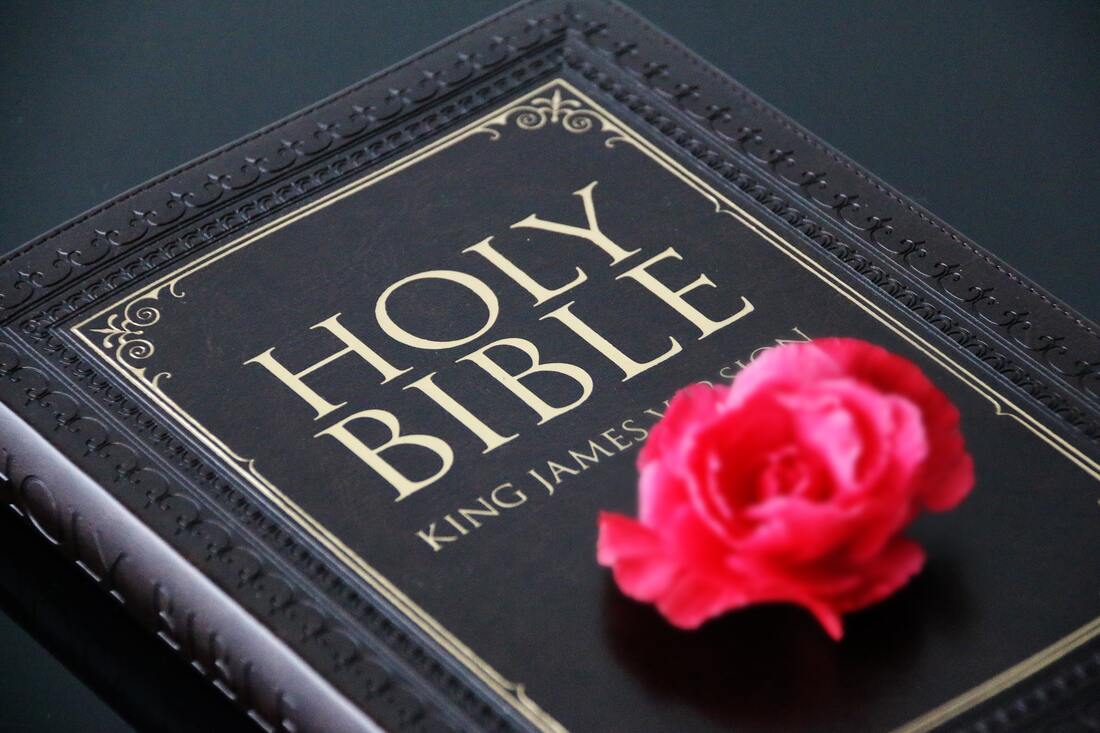
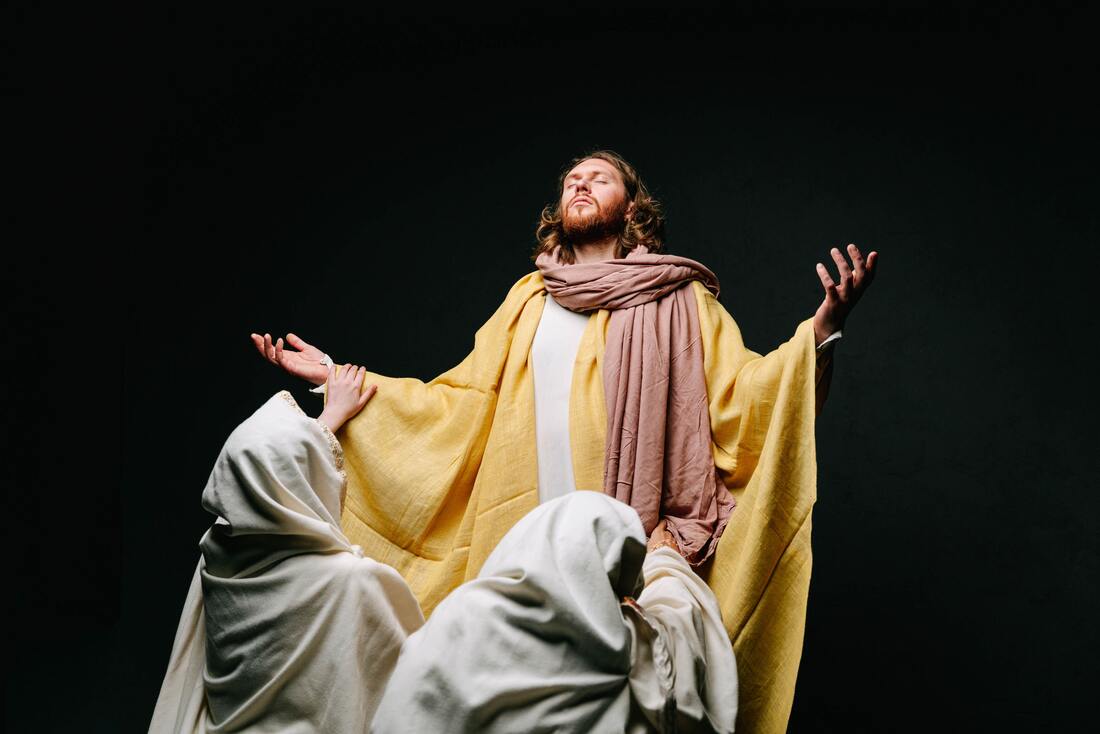

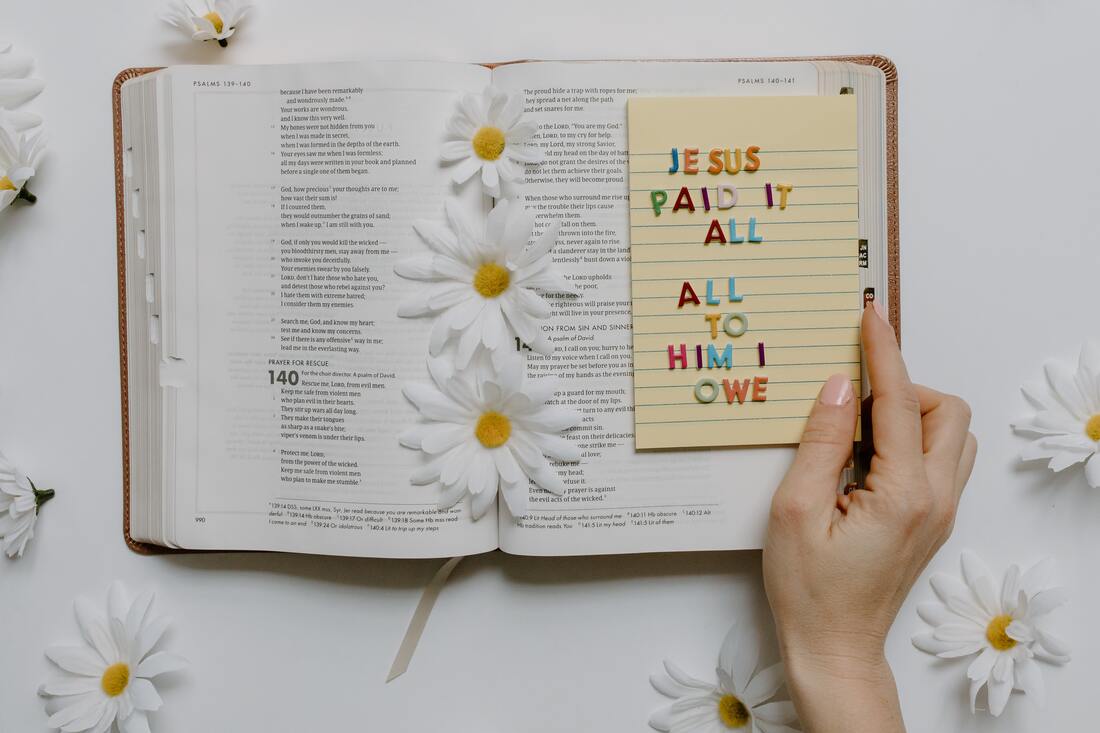


 RSS Feed
RSS Feed